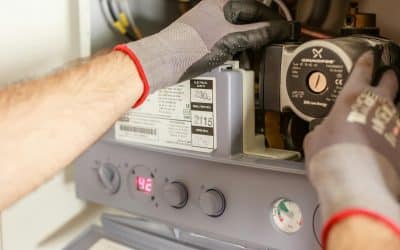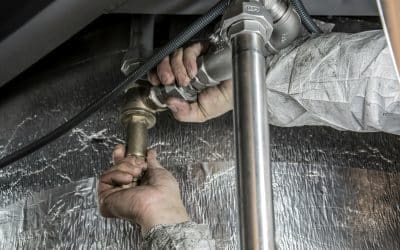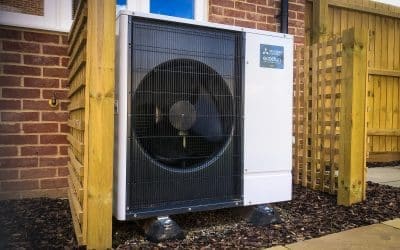Biomass boiler overheating is considered a serious problem, as it can put you at risk, or in the best case scenario, hit your pockets hard.
The latest biomass boilers come with various safety features which help prevent your renewable technology from overheating. However, in the unfortunate event that these features fail, it’s essential for you to be fully prepared and be aware of the common signs and causes of boiler overheating.
That said, the heating specialists at JL Phillips have put together a comprehensive guide explaining the signs, causes and ways to fix this overheating problem.
Let’s take a look!
Biomass Boilers – Why Do They Overheat?
The primary reason for your biomass boiler overheating is often the failure of its safety features.
Another reason for your boiler overheating is when the hot water that needs to be sent to the taps, hot water cylinder or your central heating system is blocked from being circulated. This is usually caused when a specific part of your system is damaged or because there’s a build up or blockage of some kind.
However, compared to traditional biomass boilers, the modern ones are equipped to lockout the moment it identifies signs of overheating. Additionally, it flashes an error code on its digital display to warn you about a potential breakdown or system failure.
Unfortunately, this is when you will have to call a specialist heating engineer to investigate further, or in the worst cases, need to install a new biomass boiler.
If you need assistance in choosing the right biomass boiler installer for your home, then click here!
Biomass Boiler Overheating – Common Signs and Causes
Thanks to advanced and evolving safety features, the latest biomass boilers are equipped to function, even under high pressures. This means the potential risks caused due to boiler overheating are no longer as distressing as they used to be.
Nonetheless, it’s highly recommended that you deal with this problem early on to prevent it from escalating and causing major issues.
Some of the common signs and causes of biomass boiler overheating are:
- Limescale Buildup in the System’s Heat Exchanger
- Blockage Within the Boiler
- Fault With the Pump
Should you face any of these issues with your boiler, ensure that you’re seeking assistance from a professional heating engineer. Moreover, you need to make sure they’re qualified to get the job done.
To learn more about how to find the right boiler repair company, click here!
Fixing Overheating in the Boiler – Here’s How!
Firstly, if you’ve noticed that your biomass boiler keeps overheating every time you switch it on, ensure that you’re turning off the water supply right away.
Failing to do so will allow cold water to enter your heating system, turning into steam the moment your unit starts overheating. This, in turn, increases the pressure, which can compound into a more serious issue.
While this is a very basic way to stop your biomass boiler from overheating, the signs and causes mentioned below require a higher level of expertise to be resolved.
Limescale Buildup in the System’s Heat Exchanger
In a biomass boiler, the job of a heat exchanger is to use hot gas to heat cold water and then circulate it in the entire system to heat your property and provide hot water.
However, over a period of time, limescale can spread across the heat exchanger, restricting the overall flow of water.
Not only will this put your heating system at risk of overheating but also make it more expensive to use in the long run while reducing your unit’s overall lifespan.
Now, if you aren’t sure how to identify the buildup of limescale, then here’s what you need to know:
Limescale buildup is commonly known as ‘kettling’ as it sounds like a kettle’s whistle. That said, if you start hearing a kettling noise from your system, then it’s an indication of limescale buildup – an issue only an experienced heating engineer can help you with.
If you’ve been facing this problem for a while, then it’s time to get your boiler serviced.
Blockage Within the Boiler
Normally, the buildup of sludge, limescale and other debris within your system can be identified even before your boiler starts to overheat.
Put simply, the moment you start hearing strange noises from your boiler or notice that the system isn’t heating like it should, then these are strong indicators of a blockage in your system.
In order to resolve this problem and get rid of the buildup, you’ll need to perform a powerflush.
Powerflush is basically a cleaning process that helps clear the rust and limescale buildup within your biomass boiler. This process helps ensure that hot water is freely circulated in the system and your property is heated in an efficient manner.
Keep in mind that this process can only be carried out by a professional heating engineer.
So, if you’re looking for a professional biomass boiler company, then get in touch with JL Phillips today!
Fault With the Pump
The role of a pump in your heating system is to properly circulate the water around the boiler.
If this pump turns out to be faulty, then hot water won’t be transferred to the boiler causing the system to overheat. While this issue can be resolved by a biomass boiler repair company, chances are you’ll have to replace the old pump with a new one.
Contact JL Phillips for Biomass Boiler Installation
Whether you want to fix issues like biomass boiler overheating or install a brand new heating system, the professional installers at JL Phillips have got you covered!
Give us a ring on 01636 642790 or drop us an email at info@jlphillips.co.uk to find out more about how we can help.





